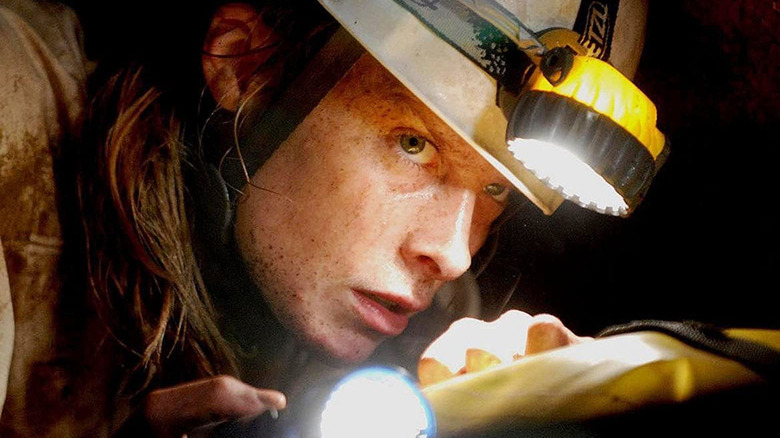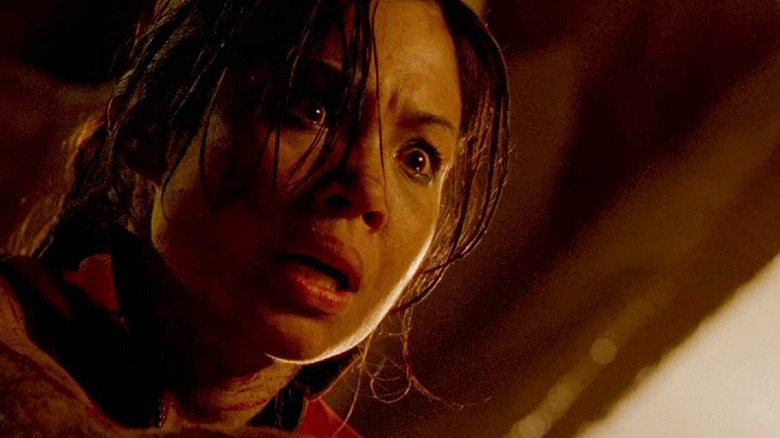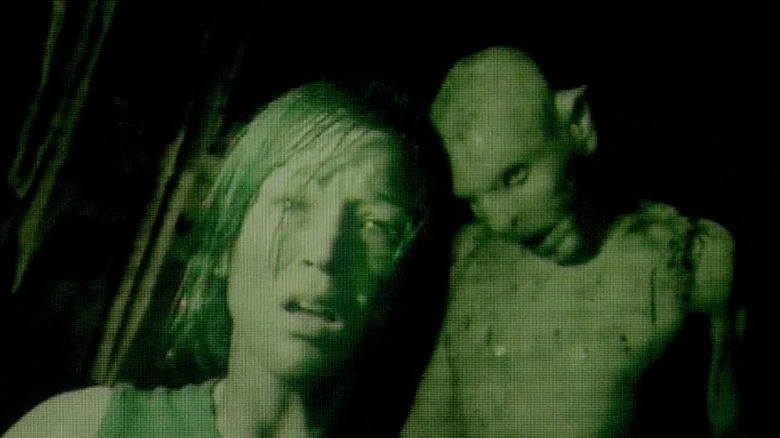The Daily Stream: The Descent Brings You Face-To-Face With Your Inner Demons
(Welcome to The Daily Stream, an ongoing series in which the /Film team shares what they've been watching, why it's worth checking out, and where you can stream it.)
The Movie: "The Descent" (2005)
Where You Can Stream It: Paramount+
The Pitch: Well before the rise of the "It's actually about trauma" trend in horror and the Jamie Lee Curtis meme that came with it, there was "The Descent."
In Neil Marshall's suffocating, dismal, gooey 2005 subterranean survival movie, there aren't any masked, stab-happy killers tip-toeing about, nor is there a supernatural curse being passed from one individual to another. The only "trauma" in the film is the very literal kind that exists in its characters' heads. It's the type they can't escape no matter where they go and no matter what they do. And when a battle with monsters in the real world forces them to come face-to-face with their inner demons, it's hard to say if the movie's leads even want to make it out alive.
"The Descent" stars Shauna Macdonald as Sarah, a woman who spends her free time seeking thrills in nature with her old friends Juno (Natalie Mendoza) and Beth (Alex Reid). One year after a shocking turn of events leaves Sarah's life in shambles, she reluctantly agrees to join her pals and three other women for a bit of spelunking in the Appalachian Mountains. Far below the ground, however, the six adventurers find they've got more to fear than collapsing passages and claustrophobia (the debilitating sort that can lead to a full-blown break with reality). There's also a group of flesh-eating, human-like creatures they dub "crawlers" mucking about in the dark.
Why it's essential viewing
In its opening (a swift whitewater raft ride followed by a horrific accident), "The Descent" comes out swinging, hitting you with jagged fast cuts and harsh, upsetting sound effects. The rest of the film barely lets up from there, even when Sarah and the others aren't crawling through smothering caverns, hanging on for dear life over vast gorges, or using climbing gear to slash their way through hordes of screeching, clawing crawlers trying to rip them to pieces. David Julyan's music oscillates from wild bombast to minimalist dread (at times even bringing Ennio Morricone's classic score for "The Thing" to mind), while Marshall and his director of photography Sam McCurdy utilize on-screen items — flashlights, flares, night-vision lens — to light the action in the caverns in striking, pleasing ways.
Marshall's thriller, which he both wrote and directed, could be read as an allegory for grief and, yes, trauma, as Sarah and his friends try to get back to the way things were, only to end up re-opening old wounds (including some they didn't even realize were there). By that same count, it's also a considerate look at female friendship, be it the highs of downing beers with close companions or the lows where lingering resentments or past betrayals threaten to destroy the group before the crawlers can even reach them. You don't get equal time with all the women here and some of them are really just red-shirts, but what you do get with Sarah and Juno in particular is emotionally captivating and brings the film's themes and subtext up to the surface. (I had to do it, okay?)
No such thing as a Hollywood ending
Creatively, "The Descent" exists comfortably at the nexus between Marshall's gorelicious B-movies ("Dog Soldiers," "Doomsday") and his cerebral horror-tinged TV directing credits ("Hannibal," "Westworld"). Much like his celebrated "Game of Thrones" episodes, there's a dramatic through-line that infuses the film's visceral thrills with a little more depth, making its story more than a thin excuse for some bloody monster mayhem (not that there's anything wrong with that in and of itself). That extends to the multiple endings, be it the U.S. version or the one that screened during the movie's original release in the U.K.
Without delving too far into spoiler territory, it's fair to state neither conclusion is what you would call an upbeat Hollywood ending. In fact, depending on how you interpret the film's underlying messages about the messy reality of grieving and the struggle to heal from past trauma, the arguably "darker" ending might not be the one you would think at a passing glance. This also speaks to the staying power of Marshall's bleak, hyper-violent, action-horror flick. Our battles with our inner demons never go quite the way we would like, no matter how we come out on the opposite end.


